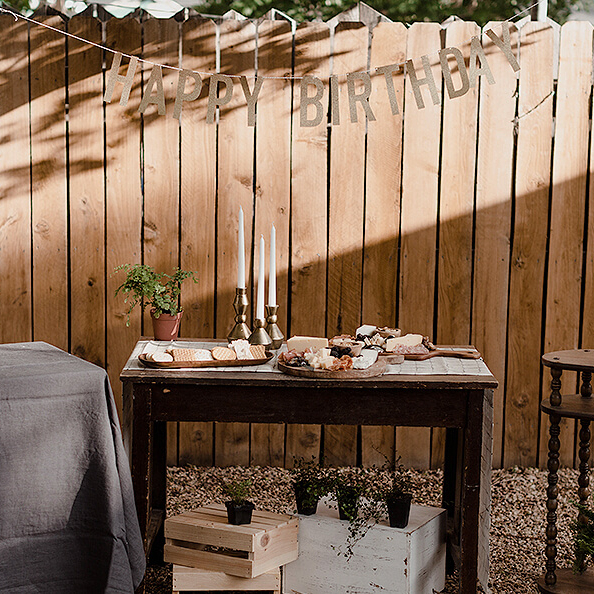I stirred the soup on the stove as our home group slowly filed into the kitchen for our regularly scheduled evening of dinner and conversation. The food was warm, the couples eager to sit at the table and chat, and my heart—was battered and bleeding.
When someone asked how the week had been, my response was blunt: “It’s been challenging.” Except I didn’t say, “challenging.” I used a swear-word–the one that starts with an “s.” She wasn’t surprised, nor did I feel guilty. She knew the real me—the one who loves Jesus passionately but also lets the odd bad word fly.
Thirty minutes later, tears dripped from my chin into my soup in a full-on ugly cry. Dinner was pushed to the side as our friends loved us the best way they knew—silence, hugs, and finally, prayer. It was the most vulnerable I had ever been, and it awakened a hunger I didn’t know: one that craved this type of friendship–void of fear, shame, or guilt. Relationships forged in the fires of the lousy parts of life, not just Instagram worthy moments.
…
“Community” is a word that gets tossed around without much care for its meaning. We talk about how much we long for it, and we casually throw all social circles under its umbrella–work colleagues, neighbors, those we see at church, play sports with, and whose photos we comment on online. We tell others that what we are craving is “authenticity.” We are eager to have friends who fit us like a favorite pair of jeans— broken in, a little dirty, but comfortable and ego-padding on our fattest of fat days.
We want depth, but rather than focusing our energy on growing that type of connection, we spend it entertaining.
We label it “hospitality” and enjoy the high, and the high fives, when we throw a great party. We like to roll out the red carpet for our guests—that gesture, of course, being a backyard soiree with charcuterie boards the length of the table and flickering Anthropologie candles. While some of us naturally possess the ability to transform a space, many do not. And those who don’t tend to get tied up in anxious knots for days stressing about the pairings of food and drink, the cleanliness of their space, and what guests will think after they’ve returned home. We have replaced the building of community through genuine hospitality with extravagant entertaining.
Somewhere along the way, we forgot that it isn’t the menu or our minimalist home furnishings that bring people together. Our ability to create beautiful tablescapes isn’t what encourages others to drop their masks and share honestly. More often, what forges deeper relationships is the hard stuff— the situations and realities that no one wants to talk about:
Getting fired. Being buried under debt. Watching aging parents deteriorate. Living with a disease. Addiction. Infidelity. Business partner, or family, betrayal.
When we pull up an extra chair at the dinner table spur-of-the-moment and allow people to use our bathrooms before we “check” them, or help themselves in our kitchen, that’s when we’ve reached familiarity. When we open our door late in the night (or show up at theirs)—that is the sign of someone who truly cares for us. When we pick up the phone and show up for the difficult conversations instead of hiding in fear or shame, that’s when we’ve reached “vulnerability” status. When we rearrange our lives to meet the needs of another, that is where devotion is tested. When we set up the guest room for an extended stay, that’s when we learn what “doing-life-together” looks like. When we hold others while they are sick, stay up all night at the hospital, shoulder responsibility, and pray as if it’s our problem instead of theirs, we have found true friends. When we cry into our dinner and show our small group that we trust them with our hurts and hearts, that is what creates community.
Our home-group soup night taught me that. One evening seated at the dinner table bonded us together more than any fancy party with photo booths and favors ever could. It was chicken noodle soup served in paper bowls with homemade bread and butter: the most uncomplicated menu served up with a side of a broken heart. And it was the most delicious meal, the most vulnerable conversation, and the most magnificent gathering that I had ever experienced.
When people walk into my home, my goal isn’t to entertain. Sure, I can prepare food, play jazz music, and pour drinks. But the most significant offer of hospitality is opening not just my front door, but my heart; it is choosing bravery and vulnerability. It is creating an atmosphere that says, “you are wanted; you are heard; you are loved.”
Real community isn’t the result of how beautifully we package ourselves or our space; people aren’t showing up to be impressed.
They want to be known. They want to belong. They want the pure version of us, not the Instagram filter—the highs from our week along with the “dirty-rock-bottom-stuff” shared with a puffy, red face streaked with mascara. They want to sit with us in our struggles and failures and share in our victories and celebrations because they want to know that we will do the same for them.
What is it that you are practicing? It is performance based, leaving you exhausted and your guests desiring a more personal connection, or are you the host who is leaning into authentic conversation and leaving people with more than the highlight reel? Are you guilty of staying in the shallows, eventually becoming resentful because what you have is an inch deep, or are you building community through genuine hospitality?
Enjoyed it? Share it!
Malinda Fuller
Malinda is a bold communicator with a passion for seeing people grow as disciples of Jesus. She and her husband, Alex, have been married for more than 14 years and she is a proud homeschooling mom to two spirited girls. Malinda’s first traditionally published book, Obedience Over Hustle, releases in the fall of 2019. You can connect with Malinda through her website or on Instagram.
But wait, there's more...



















Wow! Just wow. This article is amazing❤️Thanks for sharing!